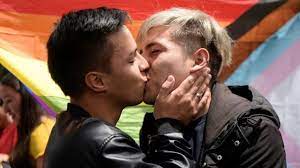Understanding and Embracing Diversity: Exploring the Experience of being Gay
As society continues to progress, it is imperative that we understand and embrace diversity. One aspect of diversity that deserves attention and understanding is the experience of being gay. In this blog post, we will explore what it means to be gay, discuss some common misconceptions, and shed light on the challenges faced by the LGBTQ+ community. Our aim is to promote empathy, acceptance, and create a more inclusive society.
What does it mean to be gay?
Being gay refers to an individual’s sexual orientation characterized by attraction towards individuals of the same gender. It is important to recognize that sexual orientation is a spectrum, with heterosexuality at one end and homosexuality at the other. Being gay is a natural variation of human sexuality and does not define an individual’s character or worth.
Debunking Misconceptions
There are several misconceptions surrounding homosexuality that contribute to discrimination and prejudice. Let’s address these misconceptions head-on:
1: Being gay is a choice.
Contrary to popular belief, sexual orientation is not a choice. Just as heterosexual individuals do not choose who they are attracted to, neither do gay individuals. Sexual orientation emerges naturally and cannot be changed or influenced by external factors.
2: Being gay is a mental disorder.
In 1973, the American Psychiatric Association removed homosexuality from its list of mental disorders. Countless studies since then have confirmed that being gay is not linked to any psychological abnormalities or illnesses.
3: All gays exhibit stereotypical traits.
Sexual orientation does not determine an individual’s personality or behavior traits. Just like heterosexual individuals, gays exhibit diverse characteristics across various spectrums such as introversion/extroversion, interests, talents, etc.

Challenges faced by the LGBTQ+ community
Despite progress in LGBTQ+ rights, members of the community still face significant challenges:
Discrimination and Stigma
Many LGBTQ+ individuals experience discrimination and stigmatization due to their sexual orientation. This can manifest in various forms such as verbal harassment, exclusion from certain social circles, or even denial of basic human rights.
Mental Health Issues
The constant fear of rejection and discrimination can have a severe impact on mental health. Studies have shown that LGBTQ+ individuals are at a higher risk of developing mental health disorders such as depression, anxiety, and suicidal ideation.
Legal Obstacles
In many countries, there are still laws that criminalize homosexuality or deny LGBTQ+ individuals the same rights and protections as their heterosexual counterparts. These legal obstacles perpetuate inequality and hinder progress towards acceptance and inclusivity.
Supporting the LGBTQ+ Community
It is crucial to support the LGBTQ+ community in their pursuit of equal rights and acceptance. Here are some ways we can contribute:
Educate Ourselves
By actively seeking knowledge about sexual orientation and gender identity, we can challenge our own biases and misconceptions. This will enable us to better understand the experiences of LGBTQ+ individuals.
Promote Inclusivity at Workplaces
Employers should create inclusive work environments where gay employees feel safe, respected, and supported. Implementing policies that protect against discrimination based on sexual orientation is vital for fostering diversity and equality.
Advocate for Equal Rights
Support organizations fighting for equal rights for the LGBTQ+ community through donations or volunteering. Show solidarity by attending pride parades or participating in awareness campaigns.
Celebrating Diversity
Embracing diversity means celebrating differences rather than tolerating them. By cultivating a society that values inclusion, we create an environment where every individual can be their authentic selves without fear of judgment or prejudice.
Conclusion
Understanding and embracing the experience of being gay is an essential step towards building a more inclusive and equitable society. By debunking misconceptions, acknowledging the challenges faced by the LGBTQ+ community, and actively supporting their rights, we can work together to create a world that celebrates diversity in all its forms. Let’s strive for empathy, acceptance, and equality.